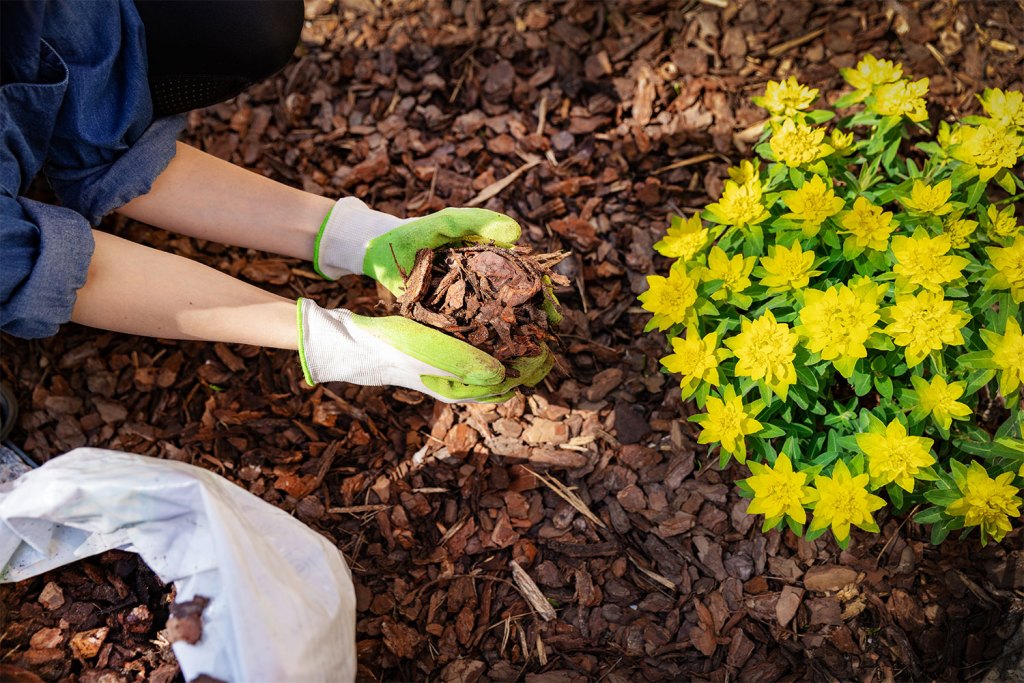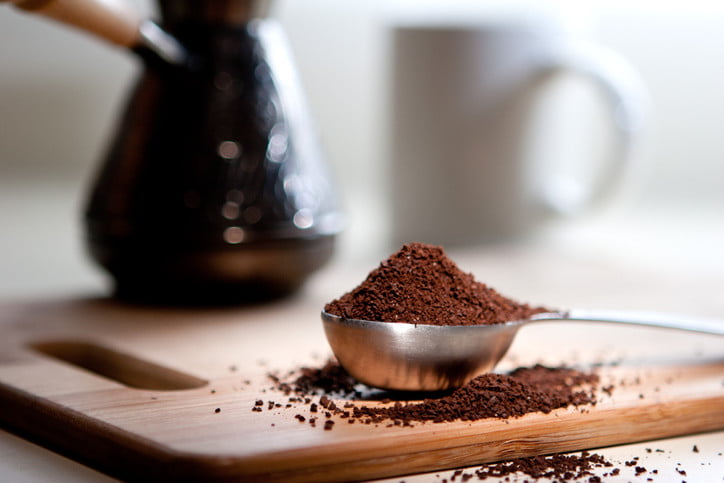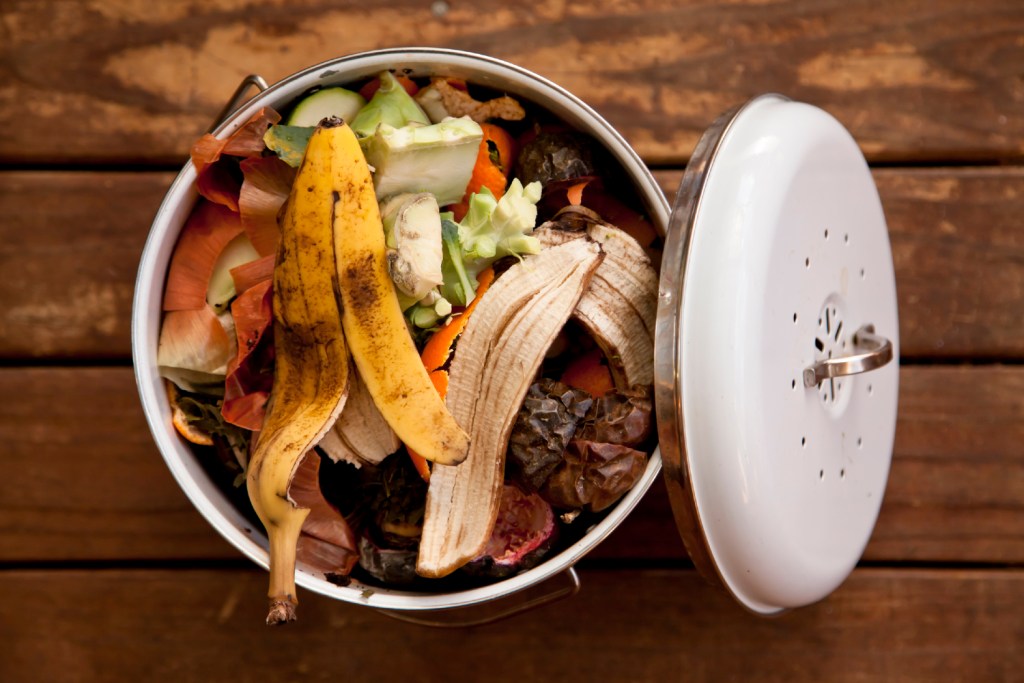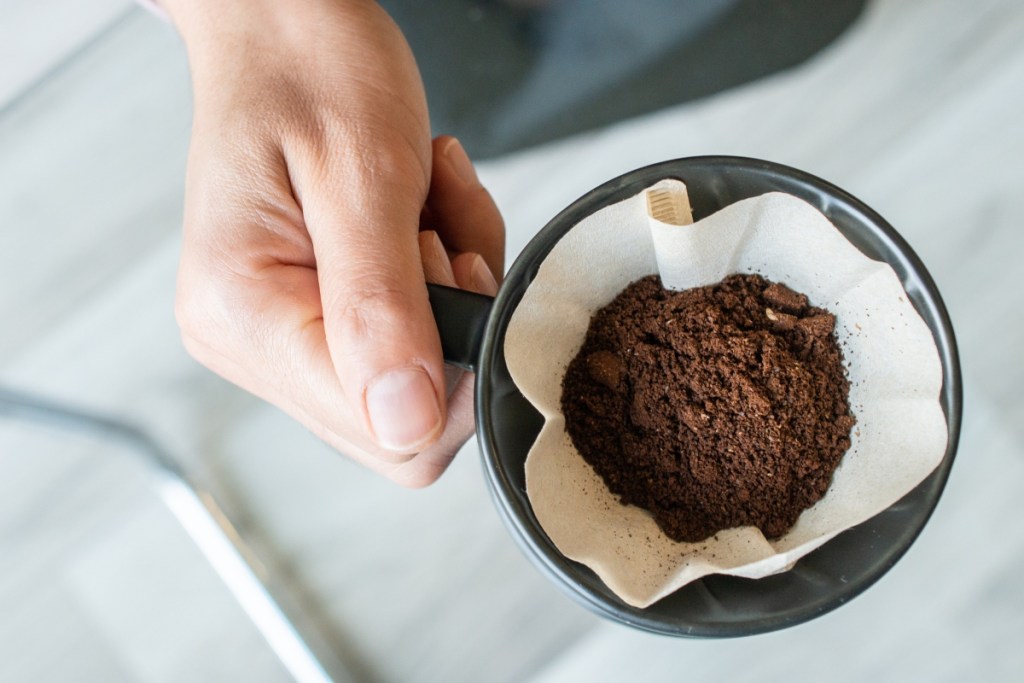
Depending on how into gardening you are, you may be aware that putting used coffee grounds in your garden is a highly debated topic. Some people swear by using coffee grounds for growing plants, while others say it’s the worst thing you can do for your garden.
So which opinion is correct, and how do you know which side to trust? How do you know if you should — or shouldn’t — put used coffee grounds in your garden? We’ve researched the pros and cons and broken them down below so you can decide if you want to use coffee grounds in the garden.

Should you use coffee grounds as mulch?
Using mulch in your garden can be beneficial, but many people find the cost of mulch too expensive to turn into organic matter. Straw and compost can be used as mulch, but not many people have tons of straw lying around, and compost takes months to create. So it seems as though coffee grounds would be the perfect solution for gardeners in need of mulch.
However, coffee grounds can actually harm the roots of seedlings by inhibiting growth if applied too thick. Also, coffee contains caffeine, which could suppress the growth of plants. Coffee grounds are tiny particles that are prone to locking together and forming clumps. These clumps can become a barrier to water and other nutrients that the plants need to absorb.
So what is the answer regarding using coffee grounds as mulch? The key is to add them in slowly. Using too much at once can create a barrier for water to get to the soil, causing plants and grass to die. But if used correctly, they can aerate the area and provide much-needed nutrients. They can also keep pests away (more on that later) and keep neighborhood cats out of your garden because they don’t like the smell (and likely won’t pee and kill anything around it). Plus, it gives you a chance to recycle your old grounds instead of throwing them away, which is a win-win.

Can coffee grounds be used as a fertilizer?
Coffee grounds contain several essential nutrients, such as nitrogen, potassium, and phosphorus, along with several micronutrients — all of which make using coffee grounds for plant fertilizer a great idea. The amount of nutrients in each batch of coffee grounds varies, but ultimately, coffee grounds can be used as a slow-release fertilizer. (Coffee grounds aren’t as acidic as some claim, so you don’t have to worry about that.)
Sprinkle coffee grounds in a thin layer onto your soil to use as a fertilizer. Just make sure you don’t use too much or pile it too closely; just like you have to be careful when using coffee grounds as mulch, you don’t want the particles to clump and create a water-resistant barrier.
Another plus? Worms like coffee grounds and worms are a necessary part of the ecosystem that is any garden. By adding coffee grounds, you’ll be making your green space a little more inviting to worms.

Should I add coffee grounds to my compost?
Composting can be very beneficial. There are two types of compost material: green and brown. Coffee grounds fall into the green category since they are a green material, which means they are rich in nitrogen. (Coffee grounds typically have about 1.45% nitrogen.) Other green materials are food scraps and grass clippings. All of these green materials contain magnesium, calcium, potassium, and other trace minerals.
You can throw your coffee grounds (paper filter and all) into your green compost bin, but when it comes time to put the compost in the garden, you must mix your green compost with some brown compost. Too much green material and your compost will smell, but not enough will defeat the purpose, too: The compost won’t heat up the way it needs to. Brown compost material consists of items such as newspapers and dried leaves. The general rule is to have a 4-to-1 brown-to-green compost material ratio.

Do coffee grounds work as a pesticide?
Many people also swear that used coffee grounds in garden beds will eliminate the slugs and snails damaging their plants. Though the reason is not apparent — whether it is the texture of the coffee grounds or caffeine content, the slimy creatures tend to avoid the stuff at all costs.
The same has been thought for ants, but there isn’t any science to back this up. The only way to find out if your garden will benefit from coffee grounds as a natural pesticide is to try it and see if it acts as a barrier to pesky insects. However, you should prepare a backup plan to exterminate the plants’ threats if the coffee grounds don’t work.

Which plants don’t like coffee grounds?
Not all plants do well with coffee grounds. Some plants are sensitive to acidic soil or too much nitrogen. Since coffee grounds are abundant in these sources, it’s important to consider whether your plants need additional acidity or nitrogen before adding your grounds to the garden.
Some plants may wilt and die with too much acidity, while others may struggle to germinate. Below are a few plants that don’t like coffee grounds.
- Geranium
- Certain flowers
- Chinese mustard
- Clovers
- Alfalfa
- Asparagus
Many flowers struggle with coffee grounds, so it’s important to research before adding them to any garden beds. Additionally, performing a soil test to better understand the acidity and nitrogen levels of the bed before adding grounds can be a good way to determine if your plants truly need a boost.
Coffee grounds can be a great addition to any garden if you follow the guidelines we’ve outlined above. Used coffee grounds could be the answer if you’re an avid gardener and feel like something has been missing. Whether you need mulch, fertilizer, compost, or pesticide, used coffee grounds could be the mystery ingredient you didn’t even know you needed to take your garden to the next level. And now that you know the facts, you can participate in that heated debate about coffee grounds at the next garden club meeting.
Editors' Recommendations
- 6 kinds of perennials that bloom in the summer for a gorgeous garden all season
- 10 simple yard cleanup tips that will make your life easier
- Should you be using vinegar in your washing machine?
- This low-maintenance, attractive ornamental grass adds instant curb appeal
- A rooftop garden is the summer oasis you need: Your ultimate care guide




